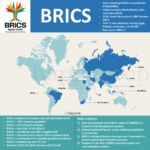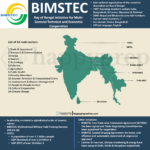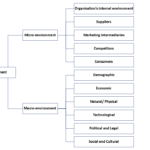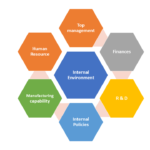Nouns in English
Nouns in English
Introduction
In the English language, nouns are one of the most fundamental building blocks of grammar. They form the backbone of sentences by naming people, places, things, ideas, and emotions. Whether you are speaking, writing, or reading, you are constantly using nouns. This article will help students understand what nouns are, their types, and how to use them correctly in sentences.
What is a Noun?
A noun is a word that names a person, place, thing, or idea. It helps us identify and describe the world around us.
Examples of Nouns in Sentences:
- Person: Ravi is my best friend.
- Place: We went to the park yesterday.
- Thing: She bought a new book.
- Idea: Honesty is an important virtue.
Types of Nouns
Nouns are classified into different types based on their usage and meaning
Proper Nouns
A proper noun is the specific name of a person, place, or thing. It always starts with a capital letter.
Examples:
- People: Mahatma Gandhi, William Shakespeare, Aishwarya Rai
- Places: India, London, Taj Mahal
- Things: Toyota, Samsung, Google
Sentence Examples:
- Sachin Tendulkar is a great cricketer.
- I visited New Delhi last year.
- My favorite book is Harry Potter.
Common Nouns
A common noun is a general name for people, places, or things. It does not begin with a capital letter unless it starts a sentence.
Examples:
- People: teacher, doctor, player, engineer
- Places: city, school, park, beach
- Things: book, car, computer, chair
Sentence Examples:
- The teacher explained the lesson well.
- We went to a restaurant for dinner.
- I have a dog as a pet.
Concrete Nouns
A concrete noun refers to something that can be seen, touched, heard, smelled, or tasted. These nouns exist physically.
Examples:
- Objects: pen, table, car, phone
- Animals: dog, elephant, parrot, tiger
- People: child, doctor, singer, farmer
Sentence Examples:
- The cake smells delicious.
- I heard a loud noise outside.
- My phone is not working.
Abstract Nouns
An abstract noun refers to an idea, emotion, quality, or state that cannot be seen or touched but can be felt or experienced.
Examples:
- Emotions: love, anger, happiness, fear
- Qualities: honesty, bravery, kindness, intelligence
- Ideas: freedom, friendship, justice, wisdom
Sentence Examples:
- Happiness is the key to a good life.
- We should always speak the truth.
- Bravery is admired by all.
Collective Nouns
A collective noun refers to a group of people, animals, or things that are considered as one unit.
Examples:
- People: team, committee, jury, audience
- Animals: herd, flock, pack, swarm
- Things: bunch, collection, pile, set
Sentence Examples:
- The team won the match.
- A herd of cows was grazing in the field.
- I bought a bunch of bananas.
Countable Nouns
These nouns refer to things that can be counted. They have singular and plural forms.
Examples:
- one apple, two books, three chairs
- a dog, an elephant, many cars
Sentence Examples:
- She has three notebooks.
- I bought two apples.
Uncountable Nouns
These nouns refer to things that cannot be counted individually. They often refer to substances, concepts, or qualities.
Examples:
- water, sugar, air, sand, happiness, knowledge
Sentence Examples:
- Water is essential for life.
- I have great knowledge about science.
Possessive Nouns
A possessive noun shows ownership or possession.
Rules for Forming Possessive Nouns:
- Add ’s to singular nouns: The boy’s book
- Add only ’ to plural nouns ending in -s: The teachers’ meeting
- Add ’s to plural nouns not ending in -s: The children’s toys
Sentence Examples:
- This is Rahul’s bag.
- The dog’s tail is wagging.
- The students’ classroom is clean.
Singular and Plural Nouns
Nouns can be singular (one) or plural (more than one).
Singular Noun | Plural Noun |
apple | apples |
child | children |
city | cities |
leaf | leaves |
man | men |
Sentence Examples:
- The child is playing. → The children are playing.
- I saw a leaf on the ground. → I saw many leaves on the ground.
How to Identify a Noun in a Sentence?
To identify a noun in a sentence, ask yourself: Who or what is the sentence talking about?
Example:
- Ramesh bought a new bicycle from the market.
- Nouns: Ramesh (Person), bicycle (Thing), market (Place)
Quick Links
Want to read some more articles?
-
 Shanghai Cooperation Organization (SCO): Origin, Members, Facts, etc for UPSC and other exams
Shanghai Cooperation Organization (SCO): Origin, Members, Facts, etc for UPSC and other exams -
 BRICS: Origin, members and others for UPSC, PSC & other exams
BRICS: Origin, members and others for UPSC, PSC & other exams -
 BIMSTEC for UPSC: Origin, Members & More
BIMSTEC for UPSC: Origin, Members & More -
 General Science for Competitive exams: UPSC, PSC, APFC, EO-AO, SSC, etc
General Science for Competitive exams: UPSC, PSC, APFC, EO-AO, SSC, etc -
 THE TRADE UNIONS ACT, 1926 for UPSC EPFO APFC/EO-AO, ALC, and Other exams
THE TRADE UNIONS ACT, 1926 for UPSC EPFO APFC/EO-AO, ALC, and Other exams -
 Understanding Macroenvironment: Marketing Environment in Principles of Marketing
Understanding Macroenvironment: Marketing Environment in Principles of Marketing -
 Understanding Microenvironment: Marketing Environment in Principles of Marketing
Understanding Microenvironment: Marketing Environment in Principles of Marketing -
Interjections in English
-
Conjunctions in English
Recruitment notifications update!
-
Recruitment 2025: Recruitment for Teaching Staff in The School of Planning and Architecture, New Delhi - Vacancy, Posts, Grade Pay, etc
-
Recruitment 2025: Vacancies in Inter-University Centre for Astronomy and Astrophysics (IUCAA)
-
Recruitment 2025: Recruitment on Deputation basis in National Anti Doping Agency (NADA)
-
Recruitment 2025: Various vacancies in Artificial Limbs Manufacturing Corporation of India (ALIMCO)
-
Recruitment 2025: Various vacancies in Land Ports Authority of India
Copyright© 2024 | All rights reserved | Made in India